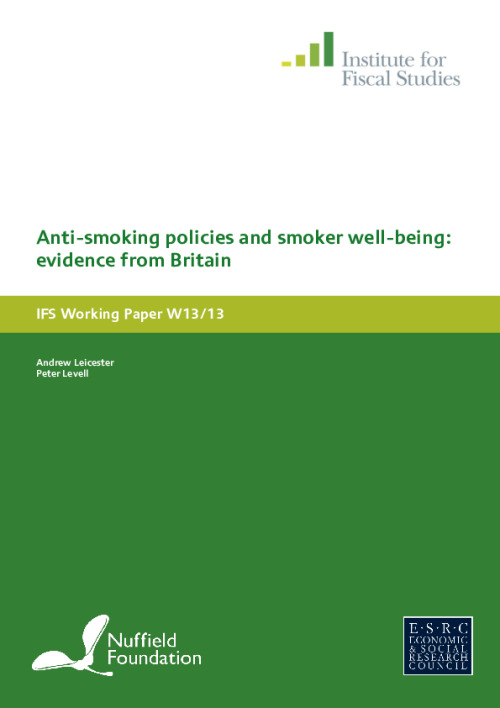Anti-smoking policies can in theory make smokers better off, by helping smokers with time-inconsistent preferences commit to giving up or reducing the amount they smoke. We use almost 20 years of British individual-level panel data to explore the impact on self-reported psychological well-being of two policy interventions: large real-terms increases in tobacco excise taxes and bans on smoking in public places. We use a difference-in-differences approach to compare the effects on well-being for smokers and non-smokers. Smoking behaviour is likely to be influenced by policy interventions, leading to a selection problem if outcomes are compared across current smokers and non-smokers. We consider different ways of grouping individuals into 'treatment' and 'control' groups based on demographic characteristics and observed smoking histories. We find fairly robust evidence that increases in tobacco taxes raise the relative well-being of likely smokers. Exploiting regional variation in the timing of the smoking ban across British regions, we also find some evidence that it raised smoker well-being, though the effect is not robust to the measure of well-being. The economic significance of the effects also appears to be quite modest. Our findings therefore give cautious support to the view that such interventions are at least partly justifiablebecause of the benefits they have for smokers themselves.
This research was funded by the Nuffield Foundation










